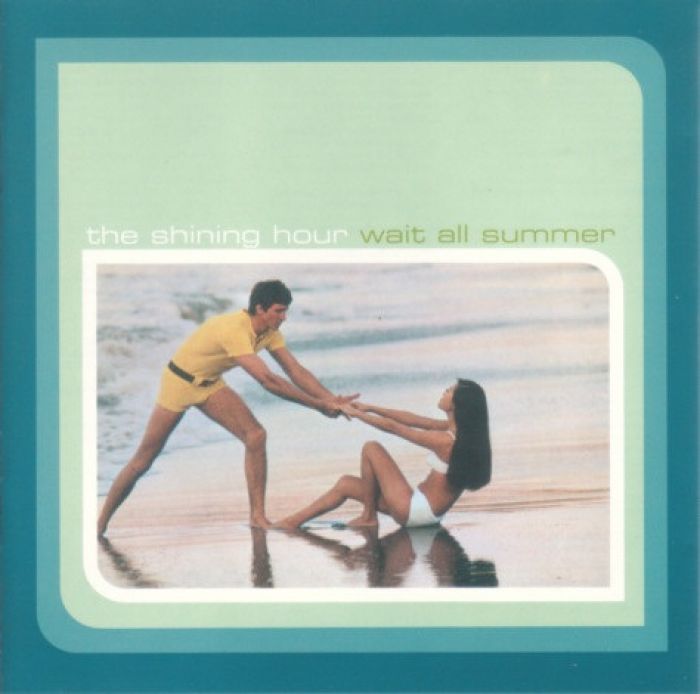Wait All Summer by The Shining Hour (Review)

The primary weakness of The Shining Hour is that they — or he, as the case may be, since the band is actually one Mark Cohen — suffers from the same weakness that all of his contemporaries (e.g., The Field Mice) do. Simply put, they’re too good at what they do. Honestly, how many times can you listen to airy, jangly pop songs about lost love, broken hearts, and all-around mopeyness before it all starts to coalesce together into one tearjerking mass?
As with every other review that I’ve written of music like this, I always come to the same conclusion; in small doses, it’s great, but once you wade through a whole album of it, it’s always like hearing your friend complain about never getting a date.
Now that I’ve got that off my chest, let’s move on to happier things. Cohen has an ear for writing great pop songs, and though many of the songs feel like they were composed in the bedroom on a 4-track, they certainly don’t lack because of it. Just listen to “I Don’t Want To Know,” where Cohen injects a healthy dose of pining that somehow overcomes the song’s cheesy Casio drum sounds. “To See Her“ ‘s vocal harmonies hearken back to the golden pop of the ’60s and the song’s final seconds wrap themselves up in a lonely guitar melody. For me, the album’s highlight is the Sundays-esque “Never Happy,” with jangling guitars aplenty and Cohen’s sleepy vocals singing “All my effort is like a raindrop in the ocean/so I sit quiet like a robot with no emotion.”
While the songs have a somewhat rough feel, Cohen’s clean melodies ring out clear as a bell and he does prove himself to be quite handy at writing a lyrical hook. Cohen’s drowsy Morrissey-esque vocals work for most of the album, though he rarely wavers in his vocal approach. That, combined with the relatively small amount of tampering that Cohen does with his musical formula makes for some high points, though by the album’s second half, you’ve already heard all that Cohen has to say.